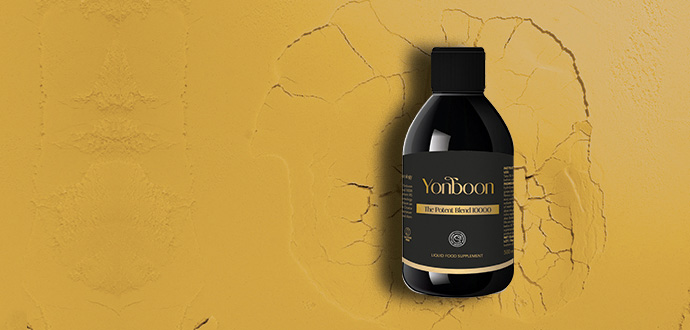Collagen 101
In the midst of all the collagen supplementation hype, so much has been said about the youth potion. Not all of it is true. But for you to be able to tell, you need to take a few steps back and reintroduce yourself to the not-so-boring science of natural collagen. Understanding the fact-based fundamentals of this amazing protein and what it does to your body will power you to make wiser buying decisions when it comes to the collagen supplements you choose to take.
If you’re not a collagen newbie and want to skip the introductory check, you may proceed to our ultimate guide for collagen supplementation to learn about the different formulas, forms and types of collagen supplements.
But if the media and your friends had you confused about what collagen actually is and what it does, stay here. By the end of this, we hope you'll be able to see how crucial collagen is for everyone and the simple steps to prevent its accelerated deterioration. Perhaps we can also inspire you to start integrating it into your every day diet- this is, of course, if you aren’t doing so already.
Collagen in a Nutshell
Collagen is the most abundant protein in your body and accounts for roughly 30% of its total protein, with hemoglobin, the oxygen-transporting protein, in second place. This should give you an idea about how important collagen. It’s the primary building block of your body’s skin, muscles, bones, tendons, ligaments, blood vessels, intestinal lining and other connective tissues like in your organs (lungs, gums, eyes…).
Think of it as a smart glue that binds in bones to make it hard but withstand some stress, and binds in skin to make it elastic but still firm. Collagen is the reason your organs’ tissues are strong, yet flexible and stretchy.
Over time, the production of collagen slows down in the body, typically in the 20’s, which causes the tissues to lose their strength and elasticity. While our internal organs might go unnoticed, those visible and more involved in our movement (mainly the hair, skin, nails, bones and joints) create the first alarms. That’s when the hair and nails ‘break’, the skin loses its ability to ‘bounce back’, the bones don’t ‘heal fast’, or the joints don’t ‘funtion smoothly’.
The Science of Collagen Deciphered
Collagen is amino acids grouped together to form protein fibrils in a triple helix structure. The amino acids that make collagen are proline, glycine and hydroxyproline, and these create around 28 collagen structures depending on the order in which these amino acids line up and where they are needed around the body.
While reading about collagen, you must have come across seemingly interchangeable scientific terms. Here is a quick brush over on the most confusing ones when we talk about collagen- peptide, amino acids, hydrolyzed collagen and gelatin.
Like all proteins, the body makes collagen by stringing together molecules called amino acids. Some of these amino acids are made by the body itself. Given the large size of collagen molecules, integrating it into topical products (like creams and serums) wouldn't be absorbed into the skin or travel deep into the skin layers where it's needed.
Current collagen supplements (like ingestible powders, shots and syrups, wondering which form is right for you? get around the issue by hydrolyzing collagen into collagen peptides, shorter strings of the amino acids that make up collagen and are more readily absorbed.
Speaking of absorption, many use the terms ‘collagen’ and ‘gelatin’ interchangeably, and while these two share similar compositions, gelatin is a degraded form of collagen and can only be dissolved once heated apart from other important differences. Gelatin is basically cooked collagen. Collagen peptides are made from collagen that has been ‘hydrolyzed’ rather than cooked. You will eventually get collagen into your system by intaking gelatin, say from a bone broth, but those molecules would be large for the body to absorb through its digestive lining. Hence, if you’re looking to increase your protein intake, you may reap the most benefits by sticking to collagen supplements.
Adversaries of Collagen
While our bodies gradually make less collagen as we age, three external factors cause collagen production to drop drastically. These are:
-
Smoking. Nicotine constricts blood vessels near the skin’s surface, preventing the delivery of oxygen and nutrients, while smoking in general damages collagen and elastin, leading to wrinkles and slow wound healing.
-
Sugar and refined carbs. These attach to proteins and form advanced glycation-end molecules which damage nearby proteins and cause collagen to become weak, dry and brittle.
-
UV light. Too much sunlight causes collagen to break down more rapidly. Ultraviolet sunlight causes wrinkles. This can be easily avoided by wearing sunscreen (SPF 30 and higher) when you’re outside.
How to Get More Collagen In
First and foremost, follow a diet rich in vitamins and minerals that are crucial for the build-up and absorption of collagen like vitamin C, zinc and magnesium. Fortunately, all Yonboon products contain a well-balanced formula of these collagen-locking components just in case you’re not getting enough fruits and veggies!
Second, which is clear by now, implement hydrolyzed collagen into your daily diet using the forms most suitable with your individual lifestyle. Want to find out what’s your perfect collagen match?
And while the science isn’t conclusive on the extent to which collagen supplementation benefits, the positive results can clearly be witnessed within 4 weeks of supplementing and maintained on the long run through consistent intake.

